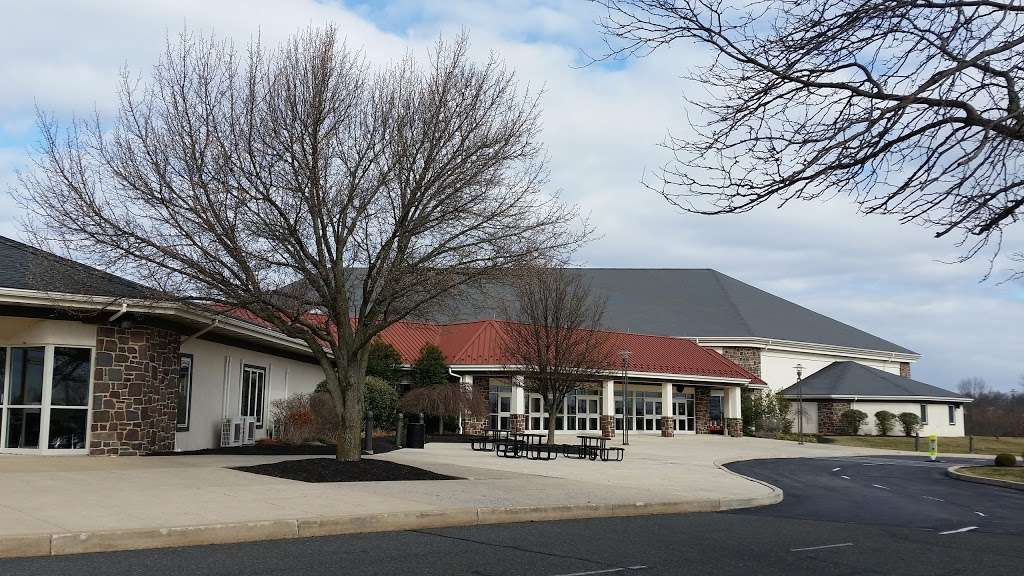The “Others” in our Communities
by: Adam Mast
Last week, my blog discussed my narrowed worldview, and featured a broader discussion of the effect certain environments can have on one’s life. As mentioned previously, I grew up in a small, slightly-rural, suburban town called Harleysville, located 40 minutes outside of Philadelphia. Growing up in this town admittedly provided me with a narrowed point of view, but I hope to have done work to undo the narrowed perspective and widen my view of the world.
| A map of Harleysville, Pennsylvania |
In Harleysville, the religious makeup is predominantly Christian, split between Protestant and Catholic. There is also a strong population of Evangelical Christians, a movement of protestant Christianity devoted to more traditional and conservative values, with a focus on being “born again” after you proclaim your loyalty to god. Both sets of my grandparents consider themselves Evangelical Christians and they strongly identify with their evangelical peers. Their fellow church-goers within their community are who they consider to belong. Non-evangelical Christians, Catholics, and other religions would be who they consider to be the “others” of their lives. I do think it is important to note that my grandparents welcome all people into their lives, but like for many, religion is just one of the most salient aspects of my grandparents’ lives. It informs their social groups and closest relationships, belief systems, and the way they carry themselves in life.
I grew up in a household that encouraged christianity, but did not prescribe it. My parents admirably let us form our own beliefs. This upbringing allowed me to separate religion from my social life, and to have friends of different faiths. As a young child, I went to church almost every week and attended a religious preschool. My social communities were formed in tandem with religion because those were the kids that were around me, not necessarily because they were christian. As I entered elementary school, religion played an increasingly less important role in my life. I formed social communities around common interests, rather than by religious affiliation. As someone who quickly became passionate about music, I often found myself identifying with people who also valued music in their lives. Throughout school, my appreciation for music and things like politics, video games, and movies, provided an immediate sense of community, even if I was in a room filled with people I did not know. The “others'' in my life were those who did not share many interests with me, which demarcated those who I may get along with, and those who I may not.
 |
| The church my family used to frequently attend |
The reading that was assigned this week in class, titled “What Clash of Civilizations?” by Amartya Sen, highlights the dangers of othering, particularly the practice of viewing Religion as the sole indicator of one’s identity. This article correctly states that religion is just one of many identities an individual may belong to. To view religion as the most salient identifier of a person is to overlook various identities that one may identify with. While my grandparents are devout evangelical Christians, they also identify as Americans, as Pennsylvanians, as fans of American football, or as their careers. Even though I have developed very different religious beliefs from my grandparents, we are able to look past those differences and find commonality. It can be dangerous to categorize a person, or a group of people, by one identification.
Arriving at college allowed me to experience a wider variety of people in my social life. I met people of different religious affiliations, people from all over the world, and people with radically different outlooks on the world than me. Throughout these next years at college, I hope to broaden my social circle and continue to meet people that widen my view of the world. It is important to be cognizant of the effects that othering can have on ourselves, and society as a whole.
I can relate to the high population of more conservative Christians around where I live. I feel like in lesser populated areas of Pennsylvania, its pretty common to find similar religious/political demographic situations. Conservative Christian values feel like they are the norm for smaller Pennsylvania towns, and I feel like differing from this can form a sense of being an "other" in your community. This probably applies more to religious beliefs than political ones, though. With political beliefs, in my experience, its easier to just ignore them and not talk to people in your community about politics. With religion, churches are more of a center of the community that bring people together, so not being a part of that experience may lead to feelings of exclusion.
ReplyDeleteI thought your reflection on how religion ties into identity for different people as well as the process of othering through religion was really interesting. I also grew up with religious grandparents that offered me a window into Catholicism, but my grandparents are pretty left-leaning Catholics. I know there is a high population of Amish people in this area of Pennsylvania-- does Harleysville have a strong Amish community? If so, I am wondering if you have any insights into how the Amish community is affected by religious othering?
ReplyDelete